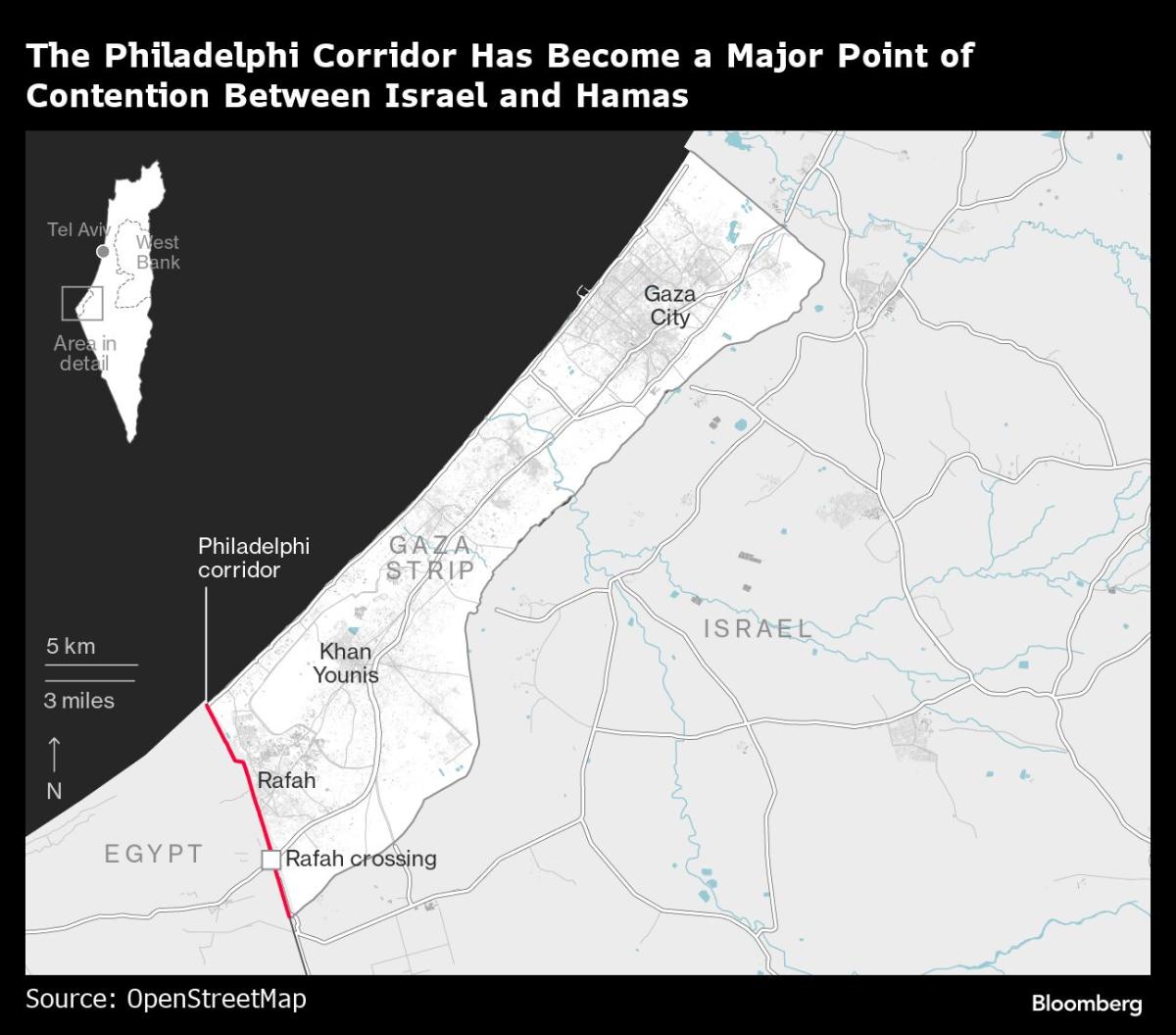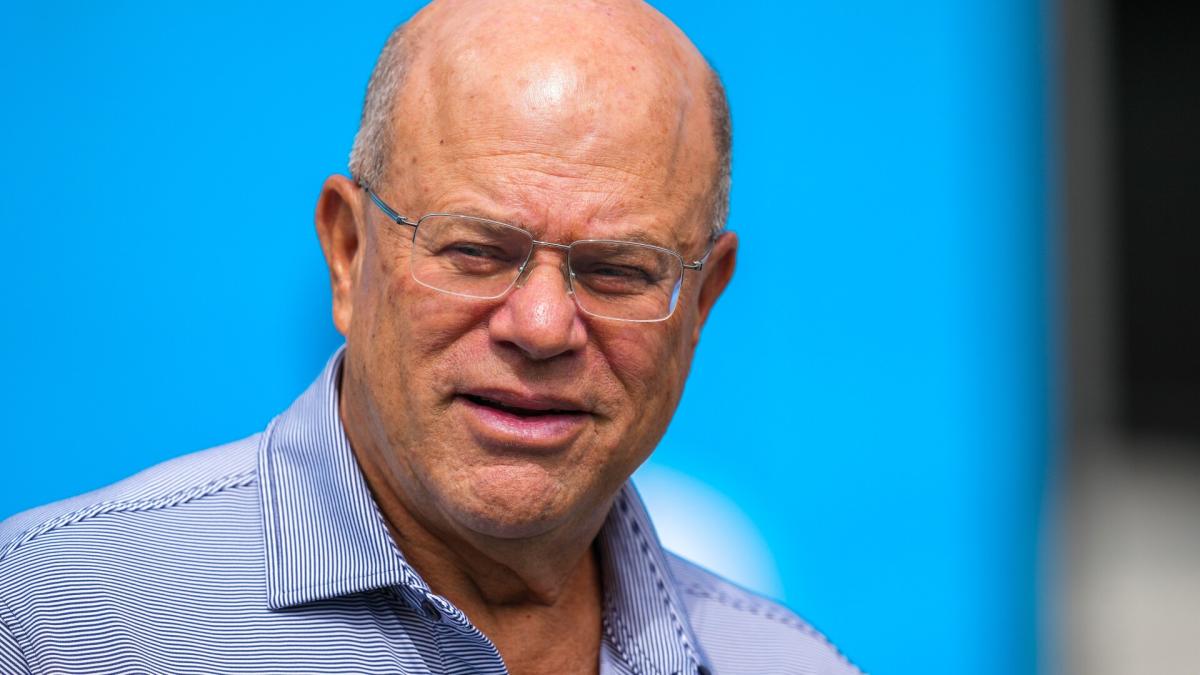(Bloomberg) — Israel’s government voted to maintain a military presence in Gaza’s so-called Philadelphi corridor, an issue that’s proved a key sticking point in cease-fire talks with Hamas.
Most Read from Bloomberg
Prime Minister Benjamin Netanyahu’s security cabinet almost all approved the policy, according to a readout of Thursday’s meeting seen by Bloomberg.
Hamas has insisted that Israel’s forces leave the area, which runs along the Egypt-Gaza border at the south of the Palestinian territory, once a truce starts. The problem is vexing mediators as they try to persuade the two sides to pause and eventually end the devastating war in Gaza, now almost into its 12th month.
In the last few weeks, Israel has taken a firmer stance on the Philadelphi corridor, with Netanyahu saying his soldiers are needed there to prevent Hamas smuggling weapons into Gaza from Egypt.
The Israeli cabinet members said their vote will bring a cease-fire closer because it will make clear to Hamas that it needs to compromise, according to the read-out.
Netanyahu said the Oct. 7 attack by Hamas, which triggered the war in Gaza, “was possible as a result of the Philadelphi axis not being in Israel’s hands,” the read-out said. “The prime minister said this reality will not repeat itself and that this time Israel is determined to keep this border under its control.”
Two ministers didn’t vote in favor. They were Defense Minister Yoav Gallant, who was against the measure, and Itamar Ben Gvir, the national security minister, who abstained.
Ben Gvir opted not to vote because Netanyahu proposed some draw down of troops and the national security minister wants no reduction at all, according to an official familiar with the matter.
Gallant opposed the proposal because he argued it would delay a truce — rather than force Hamas to accept one more quickly — and potentially cost the lives of more hostages, according to an official close to the minister. The defense minister has been at odds with Netanyahu over many aspects of the war and they have frequently clashed in public. The vote was also put to the security cabinet without warning, the official said.
The cease-fire talks, mediated by the US, Qatar and Egypt, have dragged on for months and continued this week among junior negotiators in Doha.
The corridor isn’t the only obstacle. Israel and Hamas are yet to agree how many hostages will be released from Gaza in the first phase of a deal, as well as how many Palestinians will be freed from Israeli jails.
In addition, Netanyahu says Israel will keep forces along a second corridor called Netzarim, which bisects Gaza, to block Hamas fighters moving back into northern parts of the territory. Hamas is against that demand.
Hamas, designated a terrorist organization by the US and European Union, killed 1,200 people and took around 250 hostage when its fighters swarmed into southern Israel from Gaza on Oct. 7. Israel’s subsequent offensive has killed more than 40,000 Palestinians, according to the Hamas-run health ministry in Gaza.
Most Read from Bloomberg Businessweek
©2024 Bloomberg L.P.

David Turner is a globe-trotting journalist who brings a global perspective to our readers. With a commitment to shedding light on international events, he explores complex geopolitical issues, offering a nuanced view of the world’s most pressing challenges.







